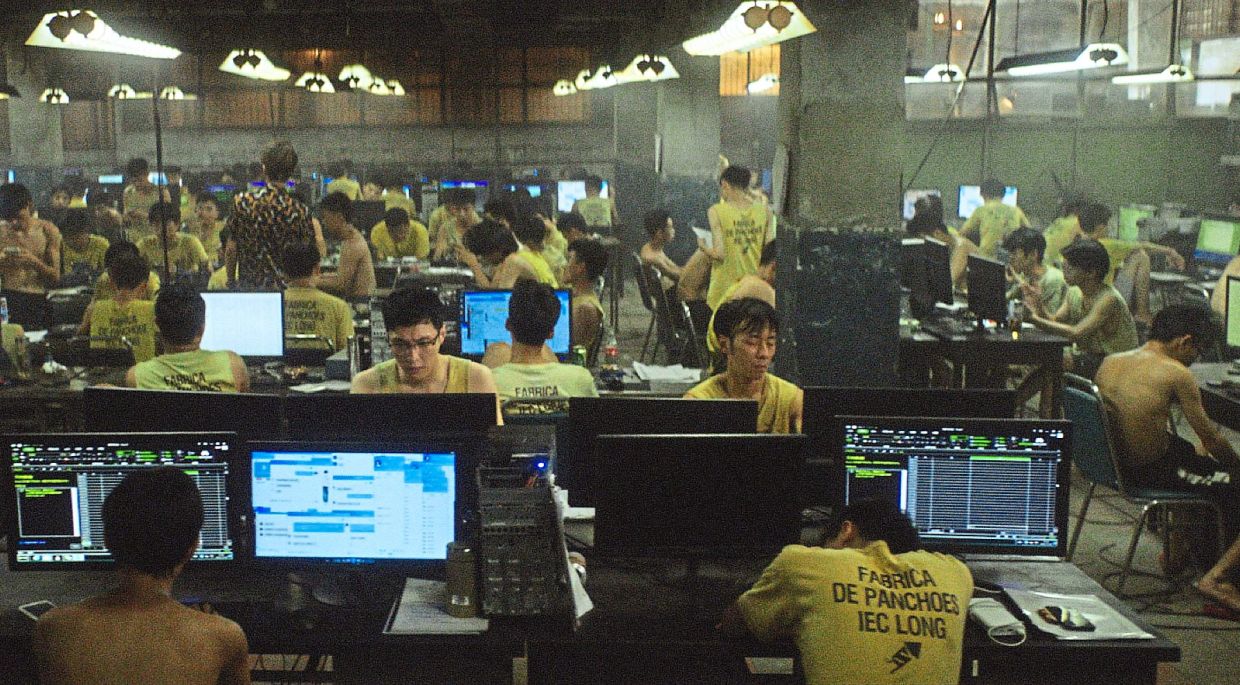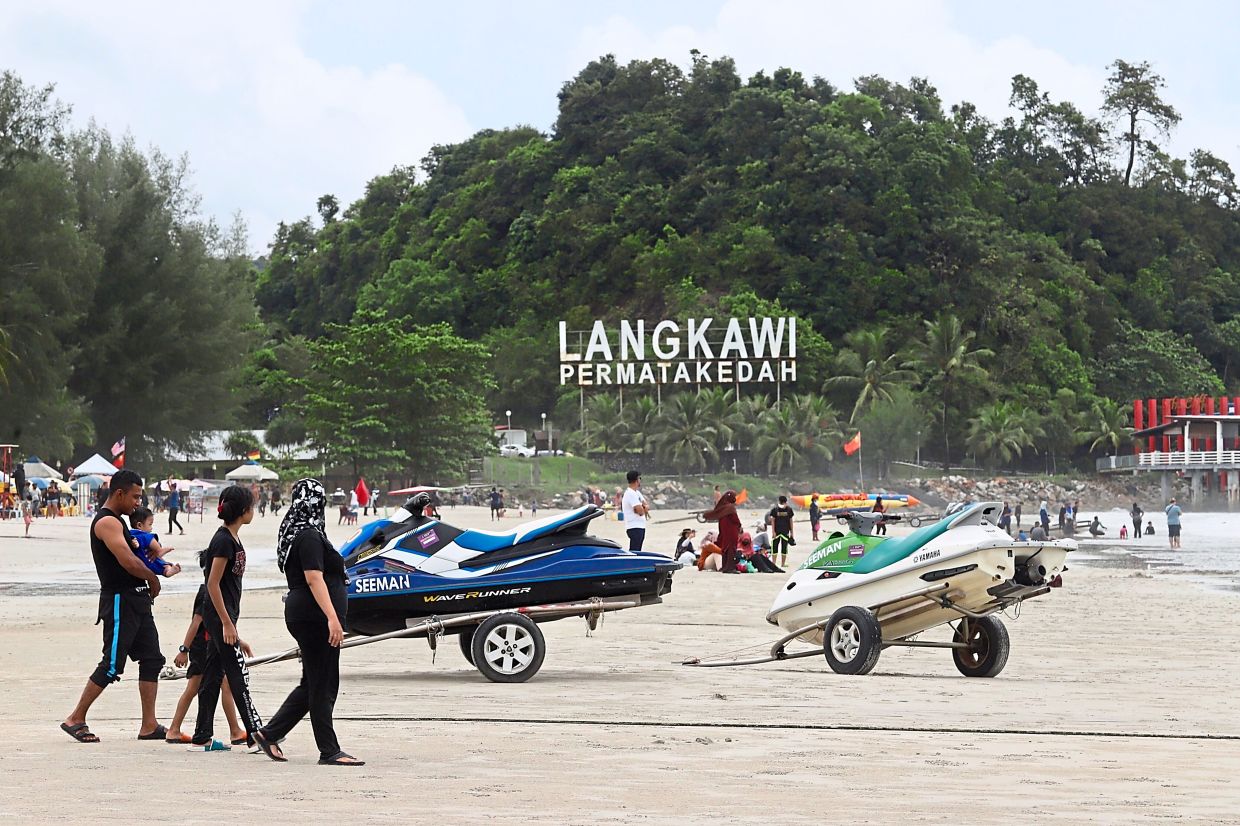WHILE attending the World Media Summit in Guangzhou, China, last week, I was interviewed by a Chinese media reporter who wanted my views on how the media could improve the perception of Chinese tourists towards South-East Asia.
Unsure what he was getting at, I probed until the polite young reporter was struggling to find the right words without sounding offensive.
Finally, he said many Chinese travellers who had watched a Thai blockbuster movie about scammers, had been spooked by it.
Thailand is hugely reliant on tourism, particularly from China, as the country welcomed over 10 million Chinese visitors each year before the pandemic – numbers which the majestic nation is struggling to replicate.
The movie No More Bets is about a Chinese computer programmer’s harrowing journey as he finds himself entangled in a violent scamming ring in South-East Asia.
News reports are prevalent about Asian individuals, including Malaysians, who are trafficked by allegedly Chinese nationals to work at scam parks or fraud factories along the Myanmar and Cambodia borders, to conduct online scams on individuals.

Bad publicity: The movie No More Bets, which tells of a Chinese computer programmer (centre) caught in a violent scamming ring in South-East Asia has scared away many Chinese tourists from visiting the region, especially Thailand and Cambodia. — Agencies
I assured the reporter that no Chinese tourists have been abducted from the streets to join the scammers and Bangkok is far away from our borders.
He said that was exactly the point where the media must work together to fight fake news and prejudicial perceptions.
Next came the point – is it true that foreign tourists in Langkawi are banned from wearing shorts, swimsuits and drinking alcohol?
Well, I told him as far as I knew, there was no such ban, and I had even verified with friends, family members and former colleagues who have made Langkawi their home.
Yet, hoteliers have said that they continue to get calls and emails from guests wanting to verify the purported ban.
I’m sure Tourism Minister Datuk Seri Tiong King Sing, who understands the importance of the Chinese tourism market, has continued to be bombarded with the same question from tour operators from China.
Kedah Menteri Besar Datuk Seri Muhammad Sanusi Md Nor has now tried very hard to deny such a ban and has even invited critics to visit the island, which has seen dwindling tourism arrivals.
The issue had cropped up when Tiong claimed that some government representatives had allegedly behaved like “little Napoleons” by harassing tourists on dress codes and alcohol consumption.

Hoteliers in Langkawi have said that they continue to get calls and emails from guests wanting to verify the purported ban on shorts, swimsuits and alcohol on the island. — Others
It doesn’t help that PAS elected representatives have the obsession of imposing dress codes on people residing in Kelantan, including non-Muslim women and even Muslim men.
Others in PAS have expressed their views on how nurses and airline attendants should be “appropriately” attired. Since perception is everything, many Malaysians believe it when there are claims that tourists have been harassed for their choice of dressing.
The situation is aggravated when a leader like former Umno warlord and current PAS member Tan Sri Annuar Musa conveys a cynical congratulatory message to Prime Minister Datuk Seri Anwar Ibrahim for a list of achievements to mark his first year in office as PM.
Annuar included in his list the PM’s approval for Coldplay to perform here, despite PAS’ objection, licenses for the sale of alcoholic drinks and easing visa restrictions for Chinese and Indian travellers. Somehow, the party poopers conveniently forgot the relaxation was extended to Middle Easterners, too.
These remarks reek of racism and jeopardise the efforts of many people, simply putting them in a fix as tourism has a huge spillover economic effect. The biggest beneficiaries are the Malays, who work at hotels, restaurants, airlines, retail outlets, transportation and as guides.
This is all in bad taste because China has been Malaysia’s prime trading partner for the past 40 years in a row and in 2019, US$2.84bil (RM13.25bil) was generated by Chinese tourists in Malaysia, accounting for 14% of the country’s total tourism. Like Thailand, we need that money back… badly.
The two nations have been each other’s largest trading partner for decades consecutively. We expect our politicians to be more discerning when they speak. To cast aspersions, even if it’s only for domestic political expediency on China, our best customer for our exports, it will hurt us.
In fact, China-Asean bilateral trade even performed better despite the pandemic, jumping from US$642bil (RM2.9 trillion) in 2019 to a whopping US$975bil (RM4.5 trillion) last year.
Likewise, music tourism has become a large chunk of the economic pie with the Tourism Ministry going all out to reinvigorate this revenue-generating sector. Even the once ultra-conservative Saudi Arabia has eased its rules and allows big-draw concert acts now.
According to statista.com, revenue in music events is projected to reach US$38.68mil (RM180.4mil) this year and is expected to spike in the coming years at an annual rate of 4.83%, resulting in a projected market volume of US$46.72mil (RM218mil) by 2027.
Local concert organiser Adam Ashraf reportedly said, “if we bring in around eight to 10 A-list artistes from around the world to perform at a venue with around 50,000 to 60,000 capacity per concert a year, RM100mil in revenue is achievable,” he said.
Concerts are low hanging fruits, especially since we want tourists from neighbouring countries to come to Kuala Lumpur to spend their money. If there’s too much red tape and we’re afraid of opposing PAS, then performers will go to Singapore, and even Indonesia, which also welcomed Coldplay.
Our politicians should tighten their loose tongues. Please put your heads to better use, honourable MPs, even if that’s a challenge. For heaven’s sake, think about revenue and income for the country’s growth.





